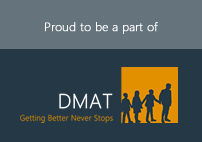This week students from our year 10 Platinum Academy attended a global justice presentation delivered by Mrs Gaskell, our Head of SME, as part of our St John’s College Inspire programme.
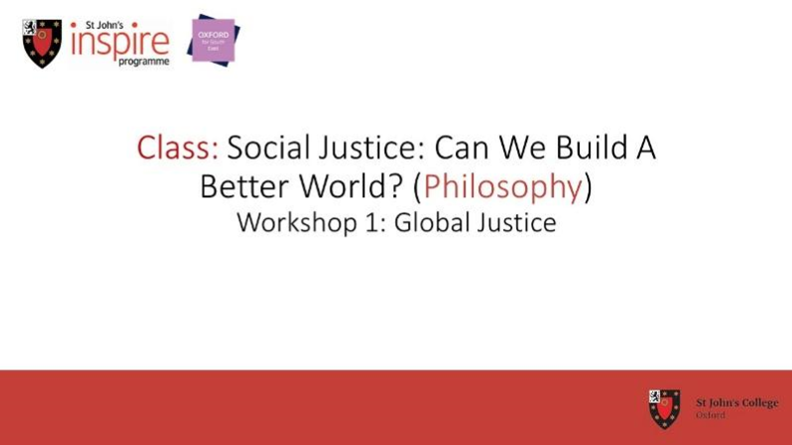
This was the first of two sessions to take place and during this first presentation students were introduced to different ideas of fairness or justice (cosmopolitanism and communitarianism) through the problem of global inequality.
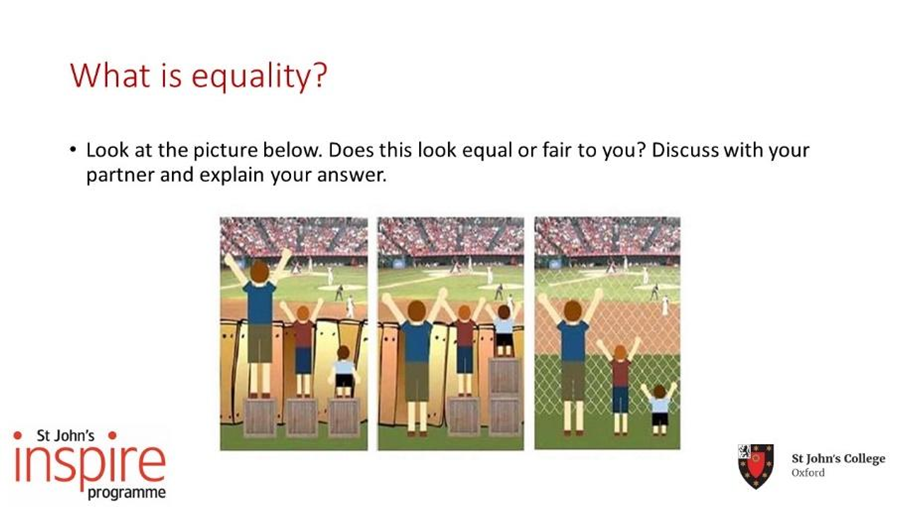
One by one, the students were shown the three images above, and asked at each stage what was happening and whether they thought it was equal or fair.
∙ In the first picture everyone has the same box – isn’t this equality? Yet everyone has different needs. Should we care about this?
∙ How is the second picture different?
∙ In the third picture the whole system has been changed by removing the barrier which was disadvantaging the smaller people
They were asked to think about whether equality and fairness are always the same thing. Equality and fairness can manifest themselves in different ways and sometimes require big changes.
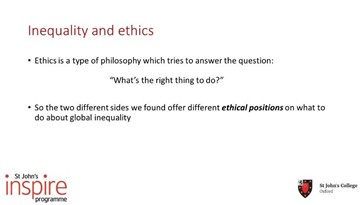
The students where then asked to think about what an ethical problem is using the following examples:
∙ Whether you should tell someone they’re wearing an ugly dress, or lie to save their feelings
∙ Whether you should drive to work which is easier for you, or cycle which is better for the planet
This led to lots of interesting debate between the students with everyone’s view being considered, and some minds being changed from their initial thoughts.
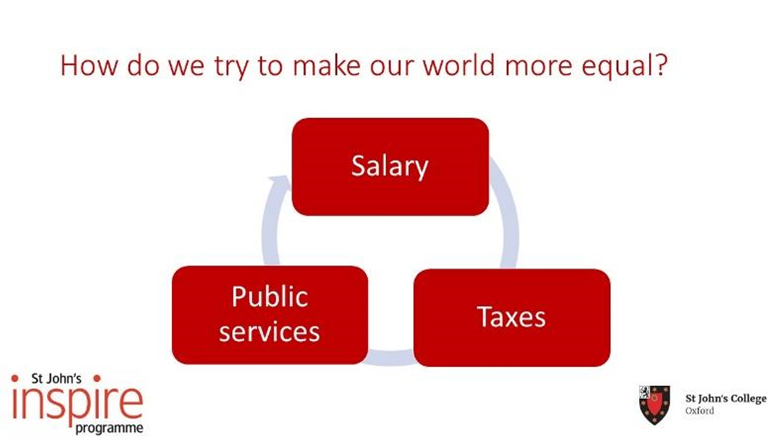
The session then moved on to a brief introduction to taxes and how wealth is distributed around to provide things that everyone needs. The students were asked what happens to a person’s salary, and what is done with the money that is taken out? Does everyone pay the same taxes? Why not? Is this fairness and equality?
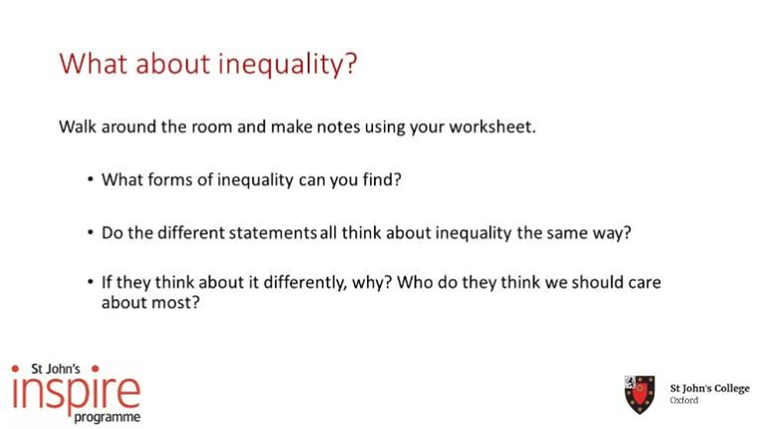
They went on to investigate statements and graphs that were pinned around the room and were asked to think about whether the statements displayed different attitudes to both equality and fairness, and how we might work out what it should be.
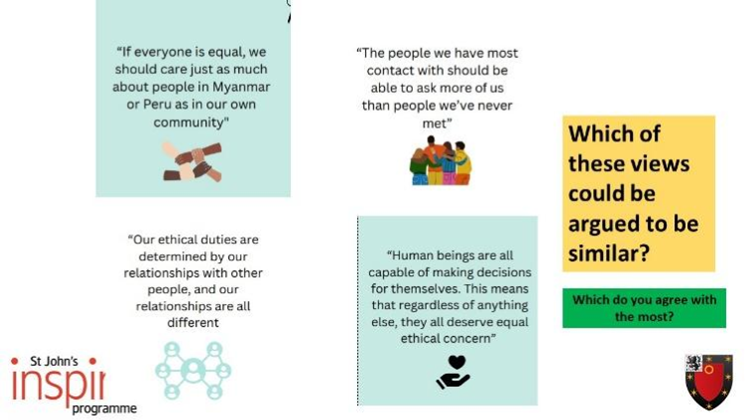
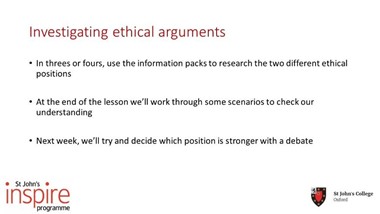
They were then asked to work in teams and explain what each side might think of the following three scenarios:
Scenario 1
∙ Should a county dump a dangerous chemical into one of tis rivers to wipe out a frog which has become a pest?
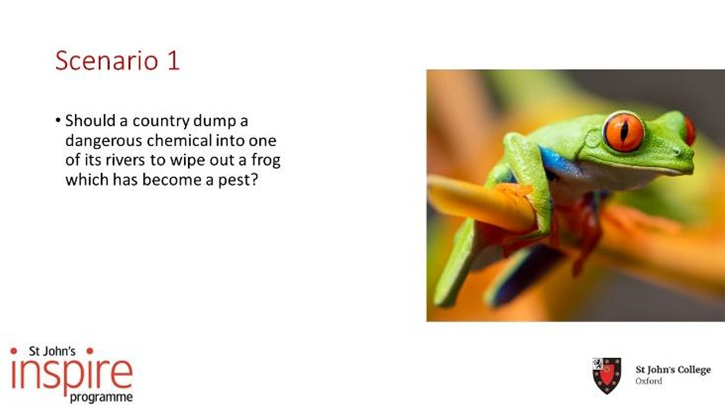
Tension: the river will then pollute the sea, which is a shared resource. So, is the main obligation to make the lives of citizens easier, even if it endangers the health or prosperity of others, or to maintain the common good even though it makes life harder for your own citizens?
Scenario 2
∙ Should a country pursue a valuable trade agreement with another country which has a poor human rights record?
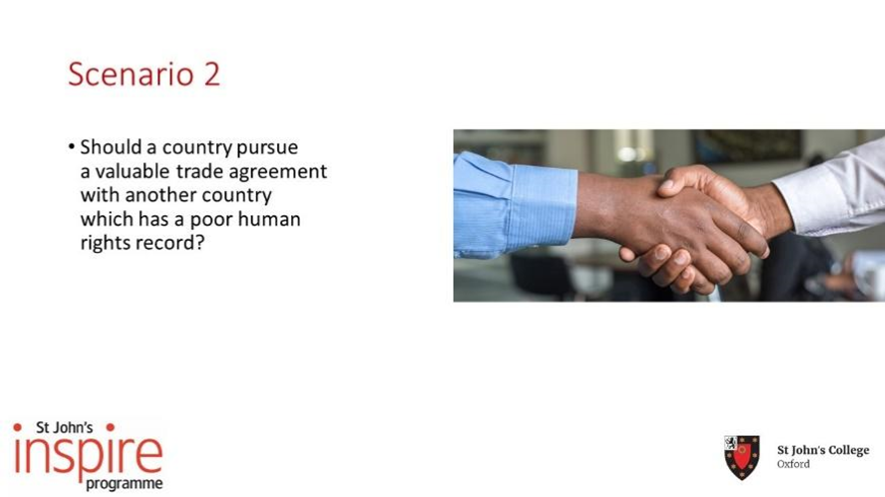
Tension: the economic good of your citizens vs the political and human rights of citizens elsewhere? How much would your country have to need this agreement before it became ethically acceptable? How bad would the human rights abuses need to be before they became unacceptable no matter what the cost?
Scenario 3
∙ Should a country deploy its soldiers to help save the civilians of another country during a flood, even if there is a chance many of the soldiers will die?
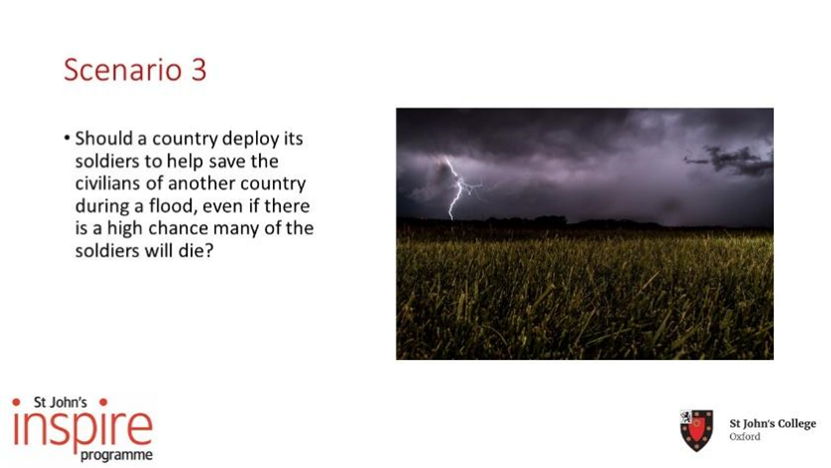
Tension: the lives of your citizens vs the lives of others. Does it matter that they’re soldiers and have signed up voluntarily? Would the situation be any different if it was a war, rather than a flood?
By the end of this first session the students had gained a better understanding of how the world is very economically unequal, and that how we think about whether this is fair or not (and more specifically what we should do about it) depends on which ethical position we adopt. Students discussed whether their ethics led them to feel more inclined to focus their support on those in their own communities or if they felt a moral obligation to support those who were less fortunate around the world who were in greater need. They were engaged in discussions around the idea of whether we as individuals (particularly young people) have earned our privilege- free education/ free healthcare or whether the privileges we experience is a result of our ancestors and whether it is just luck that we have been able to live in a country where we have these rights met… therefore do we have a responsibility to support others in the same way our ancestors have worked to support us?
What our students had to say:
“I enjoyed learning about different and interesting views of society. It expanded my own personal opinion about the world around me. I loved listening to everyone’s strong, justified beliefs in healthy debates.” Willow in year 10
“It was interesting to consider different views from different aspects of society. I liked having healthy debates and seeing reasoning for people’s beliefs.” Blossom in year 10
“I thought the workshop was interesting and a good learning experience.” Daisy in year 10










